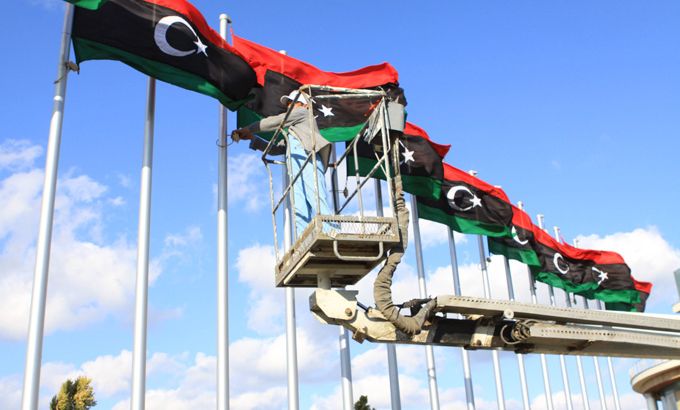
Libya in transition
Can the National Transitional Council steer the nation safely through a period of change from dictatorship to democracy?
Almost four months after Gaddafi was removed and a year since the uprising in Libya erupted, armed groups are still refusing to hand in their weapons or trust the National Transitional Council (NTC), despite progress being made on election laws.
|
“Top of the list of issues is the militias, the people who fought the war and have yet to find their place in the new structures overseen by the NTC. This is causing increasing anxiety that is it taking such a long time to resolve that.” – Ian Black, Middle East editor for The Guardian |
Mustafa Abdel Jalil, the head of the NTC, says they have issued a new law offering amnesty on all crimes committed before the revolution, except those related to personal crimes and crimes of vengeance.
He also says the ruling council has formed an independent committee to oversee a national reconciliation law.
But as the NTC comes closer to finalising plans for elections in June, the process of bringing democracy to the country is facing numerous challenges.
Foremost among these are ensuring that the elections are free and fair, and that Libya’s various tribal groups are integrated into the new parliament.
|
“The NTC is busy handling issues and haven’t had time or the focus in order to explain [that] the most important thing in this whole element are the people. The difficulty they have is that some part of the population thinks the government is still in place, there was really no revolution from top down and there’s a huge vacuum.“ – Waheed Burshan, a member of the NTC |
Security challenges also remain – decommissioning arms and bringing militias under the control of the defence ministry is proving particularly difficult for the NTC.
Economically, the NTC will have to make sure oil wealth and unfrozen assets are distributed fairly.
In addition to all that, creating legitimate and trusted institutions remains a challenge, especially as the NTC’s legitimacy is often questioned by Libyans.
With militias forming alliances in various parts of the country, can Libya safely pass through this transitional phase?
To discuss this, Inside Story presenter Folly Bah Thibault is joined by guests: Ian Black, the Middle East editor for The Guardian; Wahid Burshan, a member of the NTC; and Mohamed Eljarh, the co-founder and director of public affairs for the Libyan Academy for Creativity and Innovation.
|
“The NTC has done a good job to an extent … but it is not practicing enough transparency so it is doing the job on its own in its own circle. They are not communicating with the people properly. They are not practicing transparency as it should be with many issues, one of them the security issue or the elections.” Mohamed Eljarh, an academic researcher and activist |
Libya’s first draft election law has been the subject of controversy. In response to input from Libyans, the NTC has made some changes in the finalised document including:
| Key changes:
Up to 20 per cent of seats in the 200-member National Congress will be reserved for women, increased from 10 per cent earlier. Libyans with dual-nationality will be eligible to run for office, whereas the earlier draft required them to give up their other citizenship. Political parties can be formed under the new structure. Previously parties were banned, leading to fears of elections being hijacked by tribal leaders and wealthy individuals. Seat allocation will be based on the division of voting districts – 102 (west), 60 (east), 29 (south) and nine for the central cities. The first draft had not touched on this. |